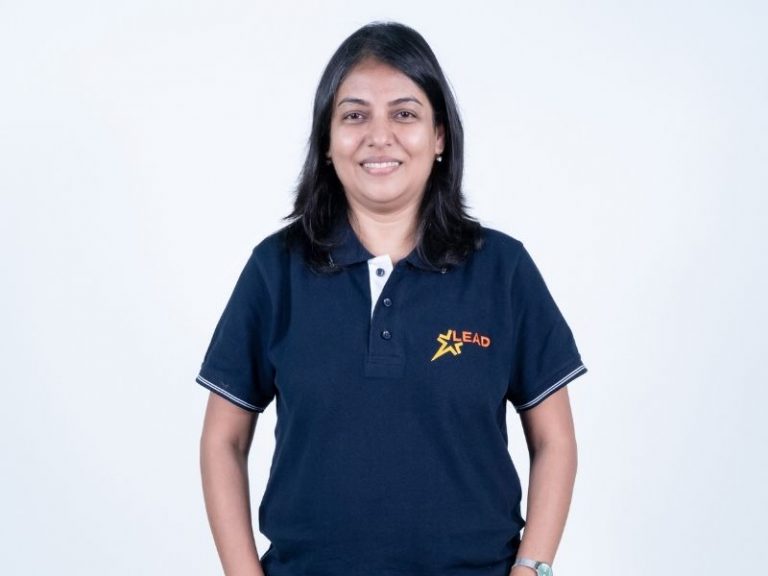Women’s Day series: Smita Deorah, co-founder and co-CEO of LEAD
As a prelude to International Women’s Day 2022 observed on March 8, EducationWorld is publishing a series of interviews with inspiring women in the field of education and parenting.
One such is Smita Deorah, co-founder and co-CEO of LEAD, India’s first school edtech unicorn in the K-12 segment. A chartered accountant-turned-educator, she has over two decades of experience in finance, leadership, and education. Recently, she became the only leader from India to receive the Power of Women Award 2022 of ASU+GSV.
Here are excerpts from her interview with EducationWorld where she talks about women’s empowerment, her journey from motherhood to conceptualising and helming an edtech unicorn and more…
What inspired you to become a teacher?
I first started teaching my own child because I found that schools in India followed very traditional approaches to learning. Despite such advanced research on brain development being available in developed countries, Indian schools were still using the same old approach of teaching from the textbook. While I taught my child, I also happened to visit some Anganwadis in my locality. I was appalled to see that kids were learning nothing in these places because the teacher had no resources or training. That’s when I decided to dedicate my time to education so that I could change these ground realities for hundreds and thousands of students. I started out by creating a school-in-a-box solution for Anganwadis and through my non-profit Sparsh, transformed 16 centres in Mumbai. The more I taught, created curriculum, and trained teachers, the more my conviction grew in dedicating my life to solving the problem of poor learning in schools.
What are the challenges you faced as you navigated this career path?
When I started back in 2010, both my kids were really young (2.5 yrs, 0.5 yrs). Like any working parent, it was challenging to raise them and take care of my responsibilities towards my teachers and students. However, there were also a lot of synergies, all my research and learning on early childhood development helped me do a better job with my students and my kids. For e.g. I taught my older child to become an independent reader by the age of 3 (using phonics and whole-word approach). I applied the same learnings in the curriculum I developed for my students and saw fantastic results. Everything I learned as an educator, made me a much better parent and vice versa. The biggest challenge I faced was really getting the school system to change – whether it was helping teachers change their practices, getting parents to see that just writing numbers or rote learning alphabets does not help their child build skills, or convincing principals to try new pedagogical approaches. That is why I started my own school in 2012 in a village in Gujarat so that I could implement my curriculum and show people what was possible. As my students and teachers excelled, others who saw us built conviction in our approach. For e.g. the ELGA (English Language and General Awareness) Program we developed in our first school, builds strong English language skills in 1.5+ million students across the country. When you try and change a system or do something different, you face a lot of disbelief and cynicism from people, most people will tell you it’s not possible. I have always taken up such situations as opportunities to show people that “it is possible”.
As a woman, what are the challenges you faced while growing up/the liberties you enjoyed as a woman?
I was fortunate that my parents raised me to become an independent individual. I have a younger brother, and we were both raised in a similar manner. We both got great education and exposure that allowed us to learn and build our own careers. When I started LEAD, my father was our first angel investor, we used his office for the first few years of LEAD, and my mom used to send celebration lunches for my whole team. They both nurtured LEAD just like they nurtured me and I am really grateful for it. As I built LEAD, my mother-in-law who was also a teacher really supported me and my husband/co-founder Sumeet by being there for our kids. I would spend days in Gujarat in our school, while mom would take care of the kids. Our parents have had a huge role in both raising our children and encouraging us in building LEAD. So as an individual I really feel privileged that I have so much support from my family to achieve my dreams.
What inspired you to become the person you are today?
I have lived in Singapore for 8 years, a top-ranked PISA country in the world. I have travelled extensively and seen some of the best education systems – whether it was Finland or studying at both Harvard and Stanford. All of these experiences have made me see what is possible for teachers and students. Seeing and comparing this with what is available for children in India, inspires me to bring excellence in education here too. I dream of an India where all kids irrespective of their birth background get an excellent education. This dream is what inspires me every single day!
How do you balance between your personal and professional lives?
I prioritise and focus on the most important things, I make choices on how I spend my time. Delivering excellent education to LEAD students and raising my kids are the two biggest things I focus on. Then comes spending time with my family. Apart from that, I don’t spend time on anything else. This allows me to focus on few things and not get pulled in different directions.
Any women-specific issues in education that you would like to highlight?
Education infact is one of those fields where you see a lot of women. Many women grow to leadership positions as school principals, or educators, trainers, school owners. It is amazing to see a very healthy gender balance in this sector. Infact in our academic team, we have more women than men. Some of the challenges that women at large face like not having enough support from parents/spouses towards career or not having an equal partnership when it comes to home/children responsibilities plague women here too. I often see teachers leave their job because of these issues. However, in the last decade there has been a big shift where more women are finding ways to balance personal and professional lives, and men are contributing more to child care. It is a very promising trend.
What according to you is feminism? As a woman, where do you think we are lagging behind? And how can we address them?
Feminism is about women and men having same rights, where both don’t need to play to stereotypes. When a women comes to work, she should not be made to feel guilty about not babysitting her child. In the same way when a man takes care of his child/does home chores, he should not be made to feel guilty about being soft. Every person has a right to choose what they want to do irrespective of their gender, and they should not be judged for it. People often respond from their expectations from each gender (e.g. when people see my husband in the school whatsapp group, they often congratulate him for being a great husband….operating from the stereotype that the role he is playing was my job), and that needs to change. The best way is to educate people, make them aware of stereotypes and help them get rid of it.
What are your future projects in the pipeline?
There are 260 million school going children in India, and currently LEAD serves only two million of them. We have a lot of work ahead of us to reach these children and provide them an excellent education. We aspire to reach 25 million students by 2026.
Your message for women on Women’s Day?
I would give this message to both men and women – behind every successful person, is a family/spouse that supports them in achieving their potential. Be that support for your spouse, and at the same time be that person who works on achieving their own dreams. Both are possible…you don’t need to choose between the two.
Also Read: Women’s Day series: Dr Manimekalai Mohan, SSVM Group of Institutions
















Add comment